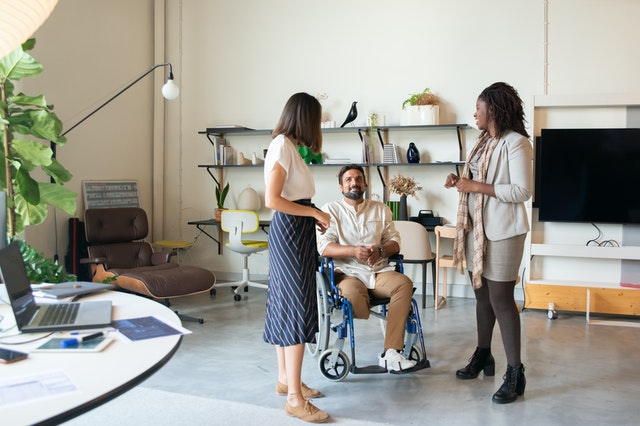According to CDC statistics, 61 million Americans live with some form of disability.
Living with a disability can be a daily challenge. And it is often made worse by misinformation and stereotypes. Overcoming the prejudice and misunderstandings surrounding disability starts with good education.
Learning about some of the most common disability myths can help you gain a better understanding of what it means to live with a disability. We’ve put together this guide to educate and inform.
Read on for the top disability myths debunked.
All Disabilities Are Visible
Just because somebody doesn’t appear to be disabled, that doesn’t mean they’re not living with a hidden disability.
Hidden disability can be unnoticeable to other people. However, they affect millions of Americans’ health and wellbeing today. A few common hidden disabilities include:
- Multiple sclerosis
- Epilepsy
- ADHD
- Brain injuries
- Mental illness
- Autism
- Learning impairments
- Fibromyalgia
Some disabilities can become more apparent as you get to know someone. Hidden disabilities are just as important as visible disabilities.
Disabled People are Brave and Courageous
Everybody loves a story about people overcoming personal adversity. In reality, most disabled people are simply learning to adjust to a new way of life. They have no intention of becoming inspirational figures.
Most of the time, all they want to do is live their lives in optimal health. People with impairments are frequently presented as superhuman.
However, this unhelpful stereotype puts unnecessary pressure on disabled people. Expecting people to be “heroic” rather than allowing them to experience their own emotions is often unhelpful.
People with Disabilities Don’t Lead Normal Lives
The false perception persists that individuals with disabilities have miserable lives. The truth is that most disabled people lead full lives. That includes education, domestic independence, travel, employment, community obligations, and so much more.
While how they achieve some of these tasks may change, they can still live a full and happy life with the right amount of support.
Children Don’t Need to Know About Disability
Curiosity is natural in children. It is important that you answer their questions about disabilities. A scolding for asking about disability can make children feel that disability is taboo.
Most individuals with disabilities will gladly answer questions from curious children.
Disabled People Can’t Work
One of the reasons some companies worry about employing someone with a disability is that they won’t be a reliable employee.
However, the truth is that persons with disabilities are actually less likely to take sick leave. Furthermore, disabled individuals tend to stay with an organization for longer.
For those who cannot work due to their mental and physical health, benefits can help them achieve a sense of independence and security. Check out benefitsclaim.com for more information.
Top Disability Myths Debunked
Taking the time to learn about disability myths and the truths behind them is your responsibility.
Education is the first step towards breaking down the misconceptions about living with a disability.
Did you find this guide educational? If sure to check out the rest of our blog for other informative content.










